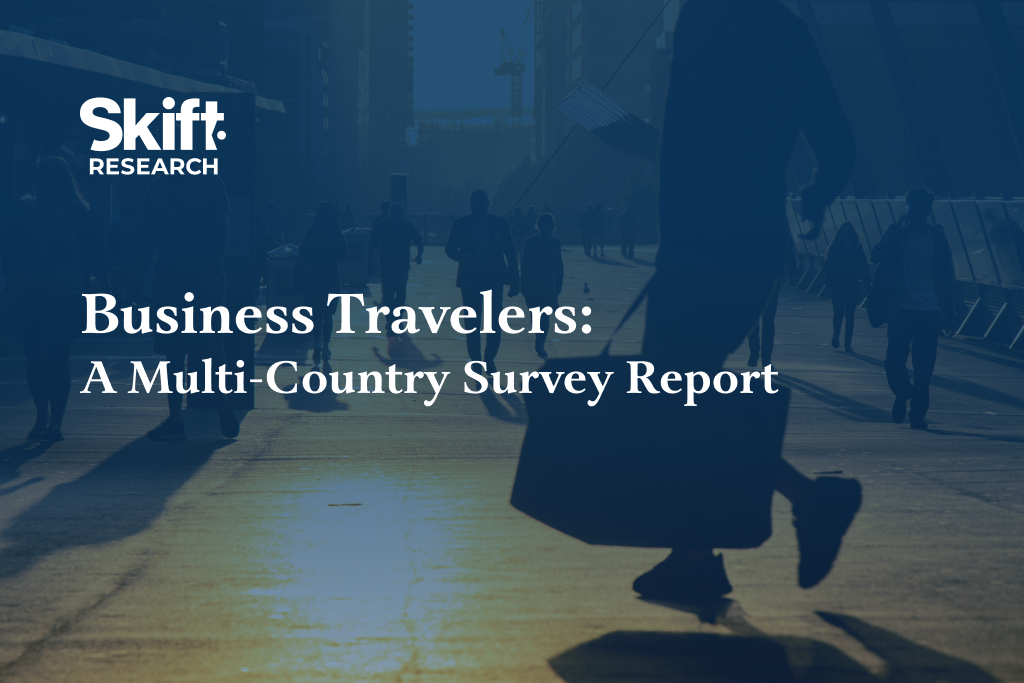Skift Take
Business travel spending is unlikely to reach 2019 levels in the near future as corporations are implementing stringent travel policies and the availability of video conferencing options is expected to displace a share of business traffic.
In a new Skift Research report, entitled Business Travelers: A Multi-Country Survey Report, we explore business travelers’ attitudes toward new ways of working and traveling for business in the evolving environment influenced by the pandemic.
We conducted a survey among business travelers from four major business hubs – U.S., UK, Australia, and India — to get a global perspective on the travel behavior of corporate travelers.
This data-intensive report presents and analyzes the findings from this survey, delving into all major aspects of a business trip – purpose, frequency, duration, travel destination, booking methods, and booking behavior — with a key focus on flights and accommodation, and including in-destination travel behavior. The report provides country-specific perspectives on broader themes like changes in business travel policies, work arrangements, and business travel spending as a result of Covid. It also focuses on how business travelers perceive traveling for business and the impact it has on their personal spending on leisure trips.
Overall, we found that business trips taken in the past six months have increased from before Covid and the majority of travelers are traveling for business development purposes. However, business travel spending is unlikely to reach 2019 levels in the near future as stringent corporate travel policies are being put in place.
Remote work continues to take over work from the office. Remote work arrangements are boosting both business and leisure travel and also the use of coworking spaces.
The gap between intent and action for sustainable business travel is narrowing as companies are interested in increasing sustainable business travel, even if it costs more.
Flights were the most used mode of transportation by business travelers, and flight times and duration are key selection criteria. Most business travelers stay in premium hotels and refrain from booking vacation rentals because of their inferior customer service.
What You’ll Learn From This Report
- Business travel highlights
- Business travel perception and policy
- Work arrangements and their impact
- Business travel and sustainability
- Booking trends: flights and accommodation
- In-destination travel behaviour
This is the latest in a series of reports and data products that Skift Research puts out to help you analyze the biggest trends in the travel industry. Tap into the opinions and insights of our seasoned network of staffers and contributors. More than 200 hours of desk research, data collection, and/or analysis goes into each report.
By subscribing to Skift Research, you will gain access to our entire vault of reports conducted on topics ranging from technology to marketing strategy to deep dives on key travel brands. You will also be able to access our proprietary Skift Travel Health Index, Skift Travel Company Tracker, Hotel Tech Benchmark, and data from our regular traveler surveys.
Have a confidential tip for Skift? Get in touch
Tags: booking habits, business travel, business traveler, corporate travel, coworking, destinations, direct bookings, economic outlook, events and conferences, flights, hotels, recovery, remote work, research, skift research, sustainability, travel spending

